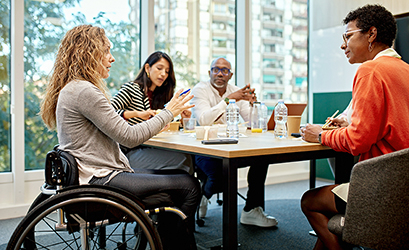Positive action programmes
The EU institutions and bodies place a high-value on equality, diversity and inclusion.
Several of them run positive action programmes that aim to provide persons with disabilities with a pathway to join their services as trainees and staff members.
Below, you can explore different opportunities offered by the institutions and bodies concerned.
